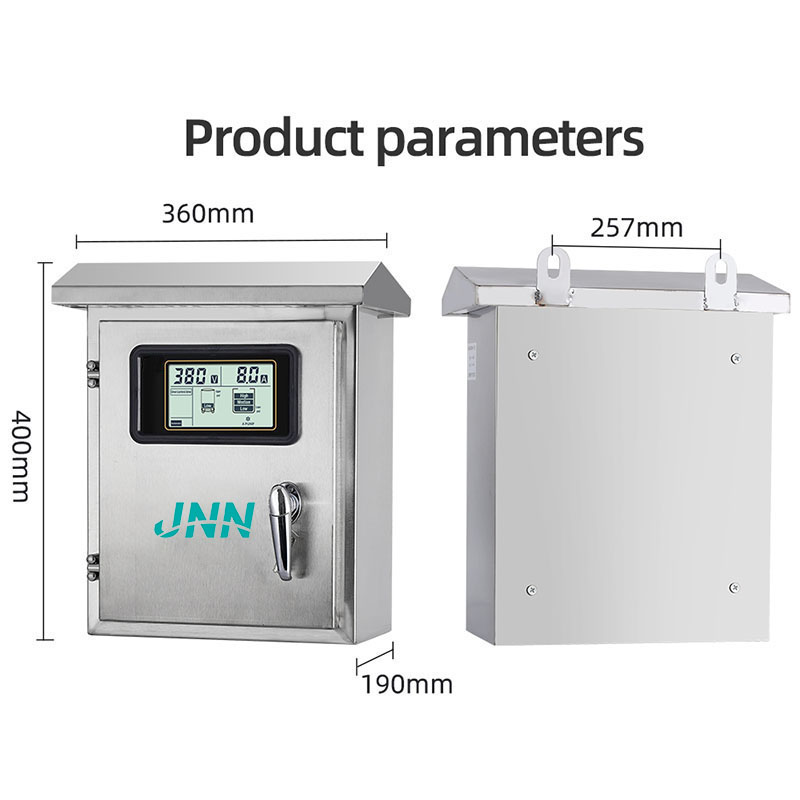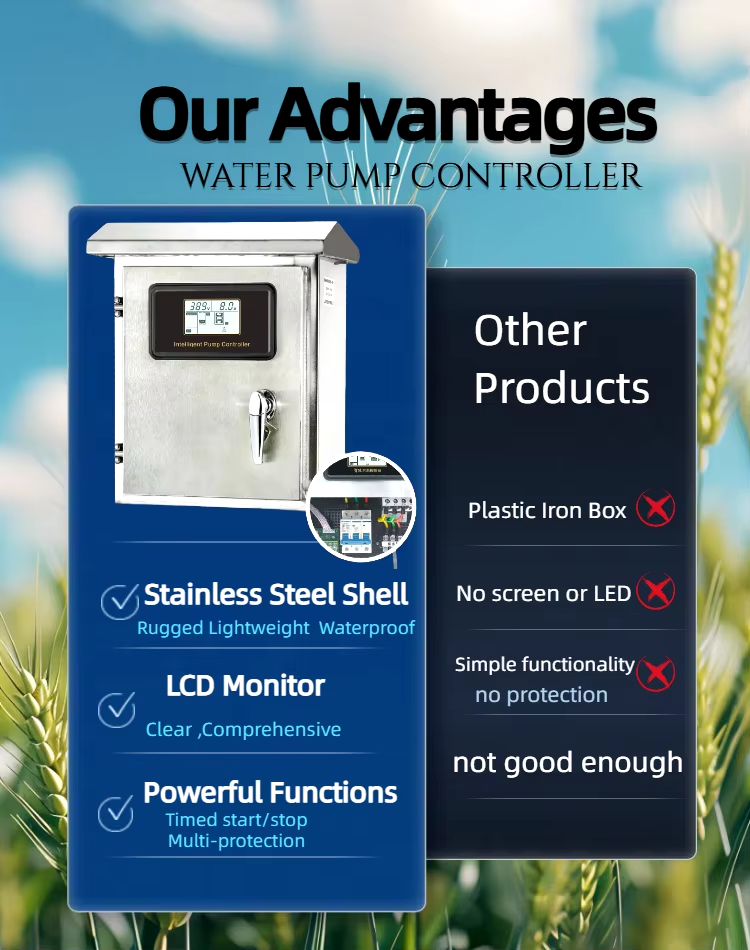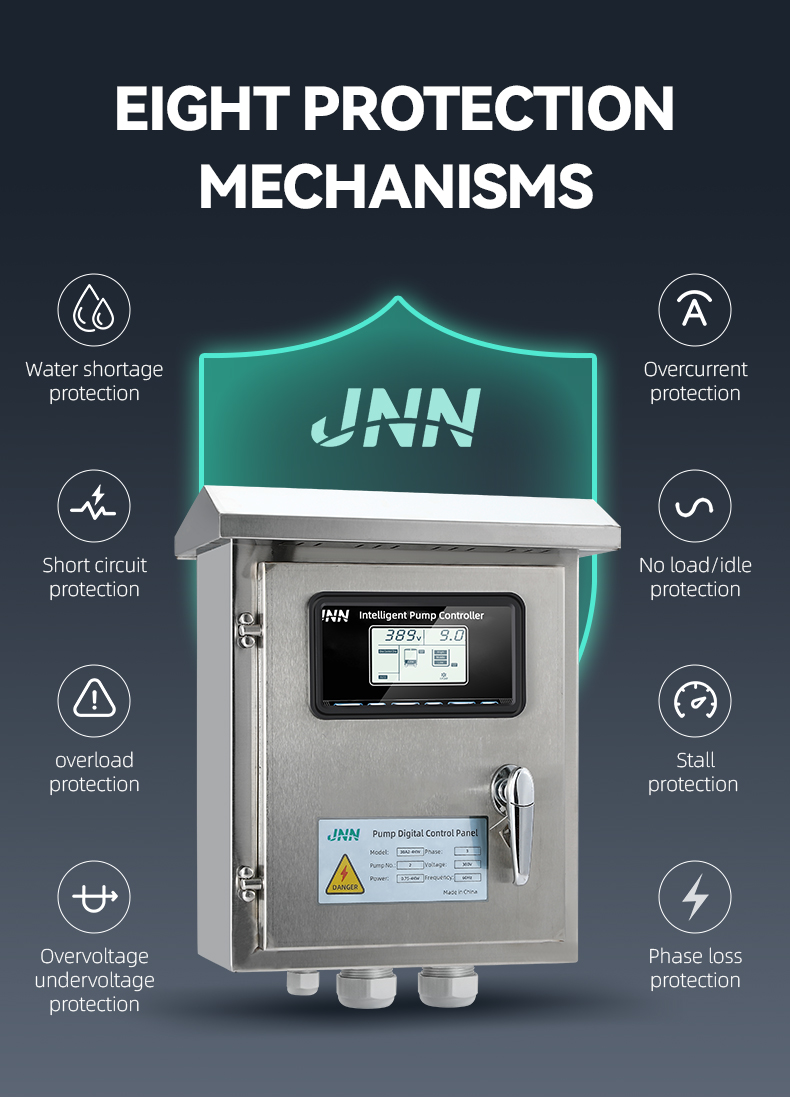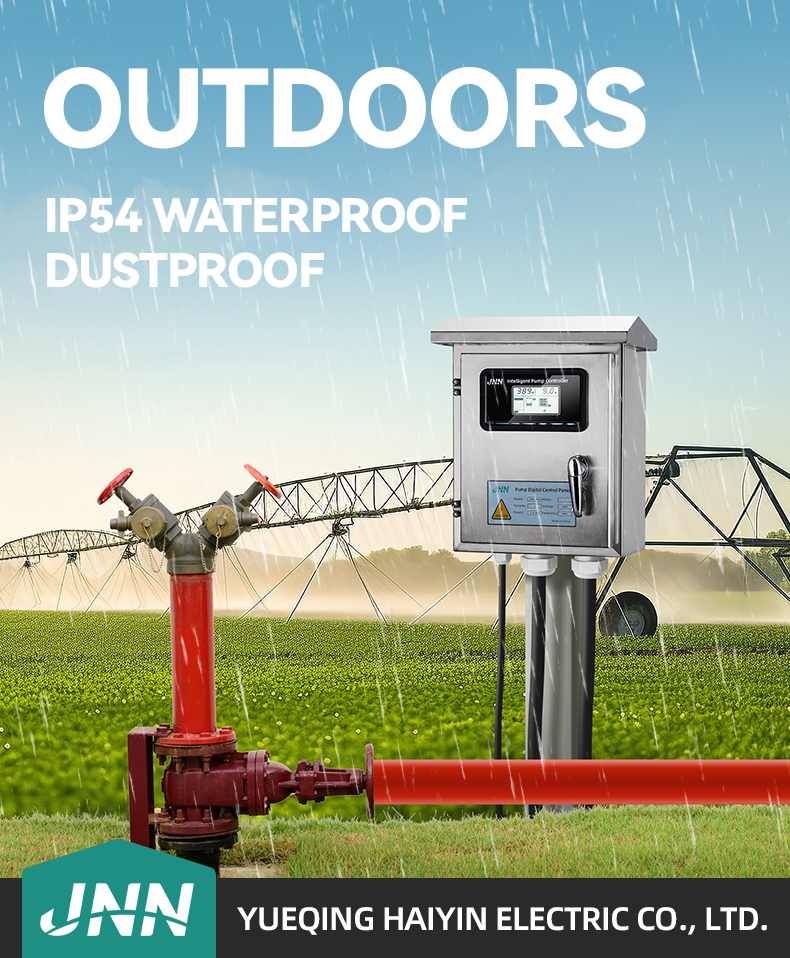When it comes to automatic water pump control boxes, their purpose is clear: these devices manage the operation of water pumps, ensuring an optimal water supply with minimal manual intervention. By automating the start and stop functions of pumps, they provide consistency, efficiency, and protection for your water system.
Automatic water pump control boxes come in various designs, tailored for different applications. The most common types feature pre-set or adjustable settings and are equipped with 25mm BSP male threads, allowing easy integration into various water systems. This article delves into their applications, benefits, and troubleshooting tips, as well as answers frequently asked questions to help you understand how these systems work and whether they are suitable for your needs.
What is an Automatic Water Pump Control Box?
An automatic water well pump control box is an intelligent and economical device designed for managing water pressure. It automates the operation of water pumps, ensuring they run only when needed, thereby enhancing efficiency and protecting the pump from potential damage. This system replaces several traditional components, including:
Pressure tank
Pressure switch
Check valve
Pressure gauge
Five-way copper fitting
Float switch
By consolidating these components into one streamlined device, the control box simplifies plumbing and reduces overall maintenance requirements. It is suitable for various applications, from household water systems to industrial processes.
Key Applications:
Maintaining Constant Water Pressure: The control box ensures a steady flow, eliminating issues like fluctuating water temperature or pressure.
Automatic Start and Stop: It activates the pump when a tap is opened and shuts it off when the tap is closed, streamlining operation.
Pump Protection: With built-in safeguards, the control box prevents the pump from running dry or overheating, extending its lifespan.

How Does an Automatic Water Pump Control Box Work?
At its core, an automatic control box monitors water pressure in the system. When pressure drops below a certain threshold (e.g., when a tap is opened), the control box activates the pump. Conversely, when the pressure reaches a pre-set maximum, the pump is turned off.
This system operates via a simple yet efficient circuitry powered by a low-voltage DC supply, consuming minimal energy. Its design eliminates the need for complex plumbing setups, making it an energy-efficient and cost-effective solution.

Advantages of Automatic Water Pump Control Boxes
Pros:
Energy Efficiency: Operates on low-voltage power, reducing electricity consumption.
Enhanced Safety: Protects pumps from dry-running, overheating, and pressure-related damage.
Simplified Maintenance: Consolidates multiple components, reducing system complexity.
Automation: Removes the need for manual pump operation.
Cost Savings: Saves water and electricity by ensuring pumps run only when necessary.
User-Friendly Design: Features auto-restart functionality to handle temporary issues like water shortages.
Cons:
Initial Cost: Higher upfront investment compared to manual systems.
Durability Concerns: Low-quality models may have shorter lifespans.
Installation Challenges: Older plumbing systems may require adjustments for compatibility.
Electronic Vulnerabilities: Requires proper protection from water ingress and power surges.
Types of Automatic Water Pump Control Boxes
Different models cater to diverse needs. Some of the variations include:
Domestic Models: Designed for household water systems, including showers, sinks, and sprinklers.
Commercial Models: Suitable for larger applications such as office buildings or small businesses.
Industrial Models: Built for heavy-duty usage in factories and agricultural systems.
Specialized Variants:
Controllers for handling specific fluids like sewage or chemicals.
Models with advanced features, such as adjustable pressure settings and integrated gauges.
JNN offers a range of reliable automatic water well pump controllers designed for durability and efficiency, making it a top choice for various applications.
Installation Guide
Installing an automatic control box is straightforward but varies depending on the model. Here are the basic steps:
Positioning: Attach the control box to the outlet of your pump.
Sealing: Use Teflon tape for threaded connections to prevent leaks (if recommended).
Electrical Wiring: Connect the control box to a power source. For safety, consult a qualified electrician unless using a plug-and-play model.
Priming: Follow the manufacturer's instructions to prime the system before operation.
Testing: Open a tap to ensure the pump starts and stops as expected.

Troubleshooting Common Issues
Even the best automatic control boxes may encounter problems. Here are some common issues and solutions:
Problem: Pump does not start
Possible Causes:
Power supply failure
Faulty wiring
Solution:
Check the power connection and replace faulty components.
Problem: Frequent cycling
Possible Causes:
Leaks in the plumbing
Malfunctioning float valve
Solution:
Problem: Pump runs continuously
Possible Causes:
Water leakage near the pump discharge
Solution:
Identify and fix leaks.
Problem: Warning lights on the controller
Possible Causes:
Overheating or jammed motor
Solution:
Allow the motor to cool or consult a professional.
FAQs
What is the difference between a 30/50 and a 40/60 pressure switch?
The main difference lies in pressure settings. A 30/50 switch is ideal for single or two-story homes, while a 40/60 switch is better suited for taller buildings.
How do I know if my pump is running dry?
A dry-running pump will show signs of overheating and may produce unusual sounds. Automatic control boxes prevent this by shutting off the pump when no water is detected.
How long does an automatic water pump control box last?
With proper maintenance and quality installation, most control boxes can last 5-10 years, though durability may vary depending on the brand and usage conditions.
Can an automatic control box be used with existing plumbing?
Yes, most models are compatible with existing systems, though some adjustments may be required for older setups.
Is professional installation necessary?
While plug-and-play models simplify installation, consulting a professional is recommended for complex setups to ensure safety and compatibility.
What should I do if the control box malfunctions?
First, refer to the manual for troubleshooting steps. If the issue persists, contact the manufacturer or a qualified technician.
Are automatic control boxes weatherproof?
Most models are designed for indoor use, but outdoor variants with weatherproof enclosures are available for specific applications.

Conclusion
Automatic water pump controllers, such as those offered by JNN, are invaluable for maintaining efficient and reliable water systems. From enhancing convenience to protecting your pump, these devices are a worthwhile investment for households and businesses alike. By understanding their features, benefits, and potential issues, you can make an informed decision and enjoy a hassle-free water supply for years to come.
















